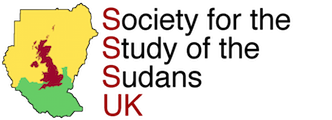About SSSUK
The Sudan Studies Society of the United Kingdom was established in 1987. Our name was officially changed in 2016 to the Society for Study of the Sudans UK, to reflect our continuing interest in South Sudan after its independence.
A Brief History
by Professor Peter Woodward
The Sudan Studies Society of the United Kingdom (SSSUK) was established in 1986. The Anglo-Sudanese Association (ASA) - largely composed of former officials of the Anglo-Egyptian Sudan - had effectively died out, and a few of us from academia thought that something should replace it, especially since the Sudan Studies Association (SSA) in the United States was developing strongly.
The four at the founding meeting of SSSUK were Lesley Forbes, then at Durham, Tony Trilsbach, also Durham, G N ‘Sandy’ Sanderson and myself. The name was chosen for the acronym (obviously); Sandy was our first chairman; and Tony the first secretary. Paul Wilson was another early member and became the long serving editor of Sudan Studies. Partly for continuity from ASA, Sir Gawain Bell, once of the Sudan Political Service, was our first President. The early members were mainly survivors from the defunct ASA, British academics and the then numerous teachers of English and NGO workers with experience in Sudan. Early annual symposia were held in the old Sudan Cultural Centre in Rutland Gate.
By the 1990s the situation was changing and SSSUK was shrinking. ASA members were fading out, including Gawain Bell who was replaced as President by Sandy Sanderson; the anti-Western character of the new regime in Sudan led to a diminution in the number of returned teachers and aid workers; and instead of Rutland Gate the society became somewhat peripatetic in its annual venues. However later in the 1990s came a recovery, though not entirely for the most desirable of reasons. The policies of the government in Sudan were forcing many into exile, including many of Sudan’s leading intellectuals. SSSUK was able to develop a much more Sudanese membership; and the novelist Tayeb Salih succeeded Sandy Sanderson as President.
In 2011 the Society celebrated its first 25 years. At the independence of South Sudan in the same year there was a strong feeling among our members that the Society should continue to be concerned with all of what had been Sudan and was now two separate countries. A change of name to reflect this - while preserving the acronym - was finalized in 2016.
Over most of its history, SSSUK has helped organize a triennial International Sudan Studies Conference, in partnership with SSA, the Institute of African and Asian Studies at the University of Khartoum, and others. It was first held in 1988. SSSUK twice hosted the event, in 1991 and 2000, thanks to the hospitality of the University of Durham. The remarkably regular sequence of these conferences was broken in 2015; time will tell whether the tradition is to be renewed.
Nevertheless, reaching the age of 30, SSSUK has not only survived but grown and prospered, first under the Presidency of the renowned artist Ibrahim El Salahi, and now the distinguished author Leila Aboulela. As well as the lively annual symposium, the Society has developed closer links with others involved in Africa more broadly, staging a series of joint meetings highlighting the continuing problems of both South Sudan and Sudan. At the same time its major publication, Sudan Studies for South Sudan and Sudan, has maintained its high quality articles and has achieved increasing recognition.
